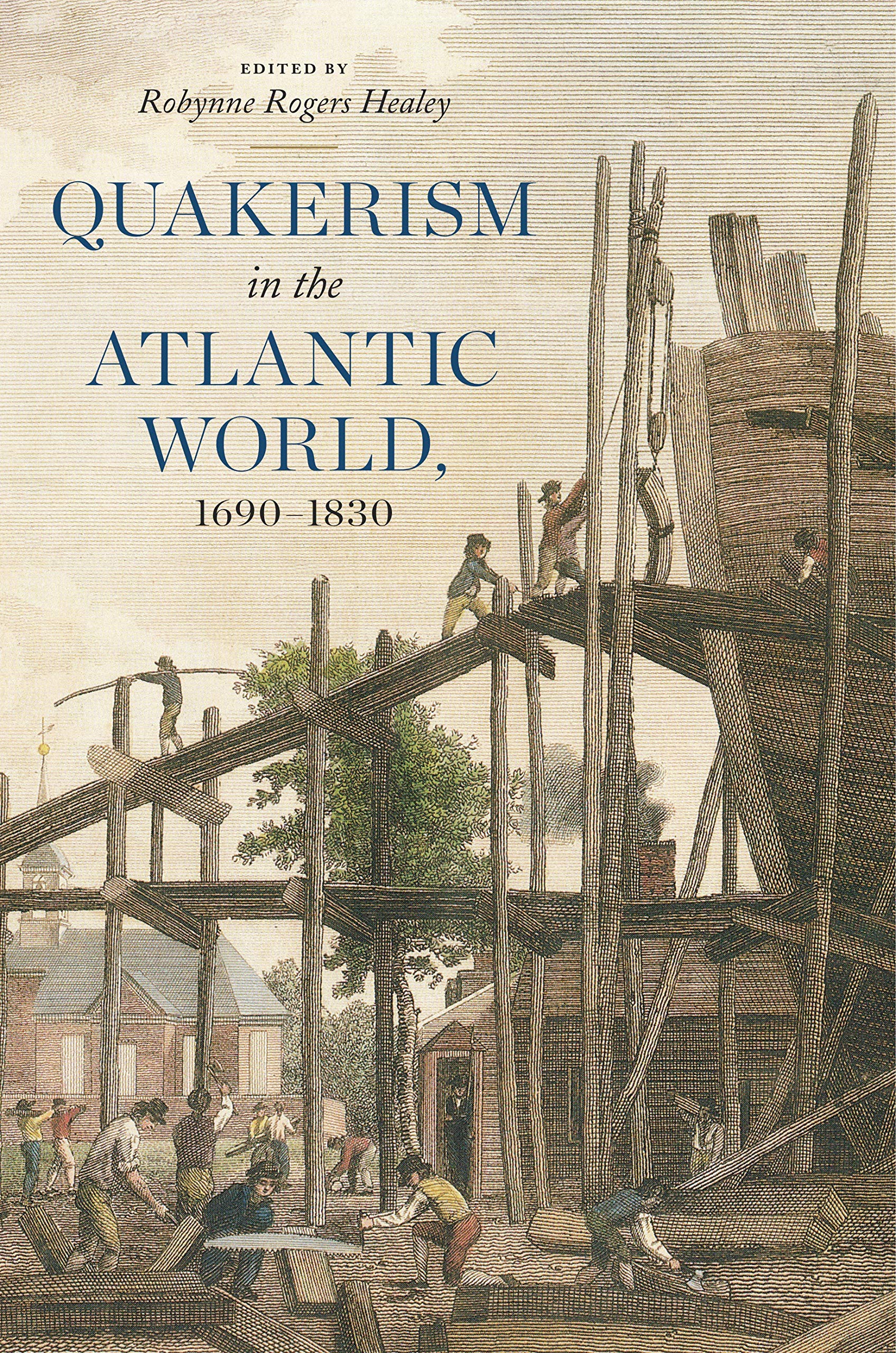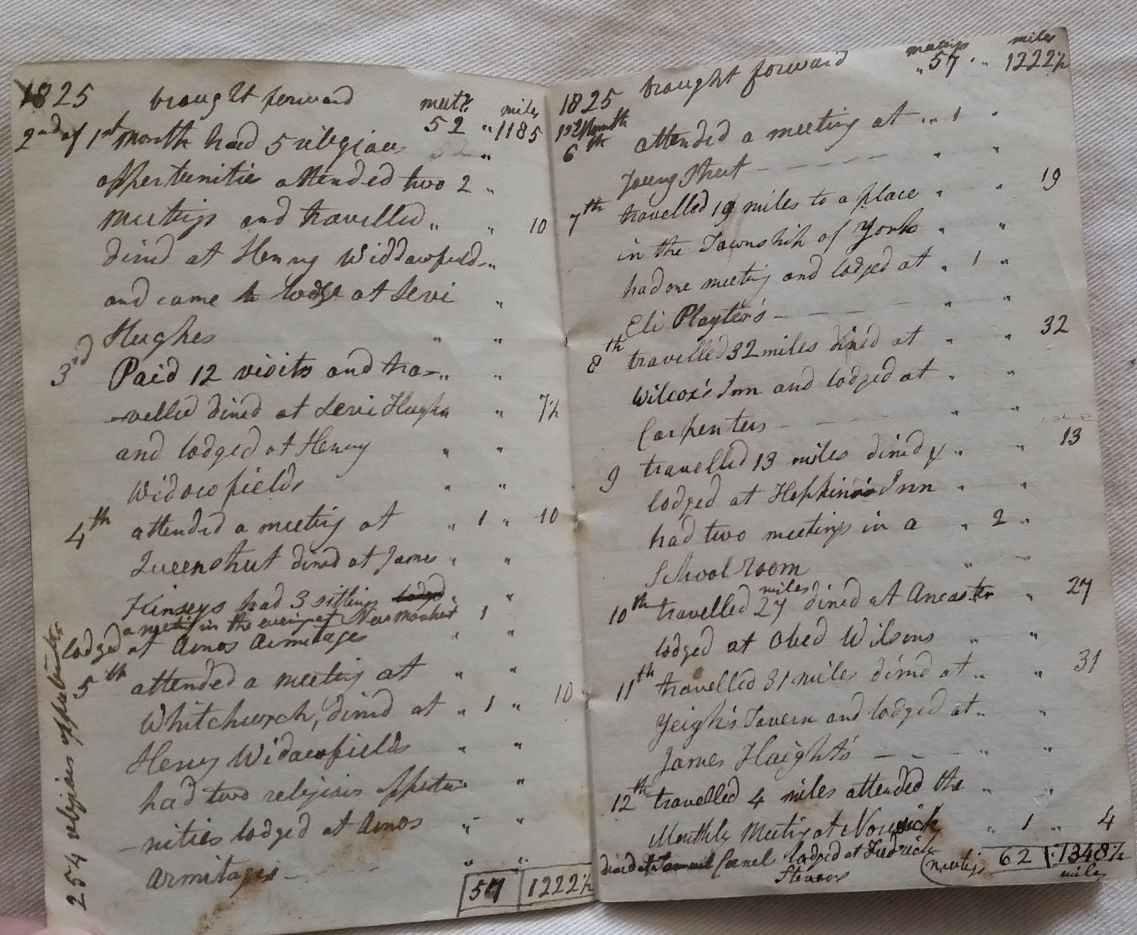
Join us Saturday, March 12th, for the fifth lecture in CFHA’s Quakerism in the Atlantic World series. This series has provided a wonderful opportunity for connection and dialogue, and we’re greatly looking forward to our next speaker, Dr. Richard C. Allen. He will present on his chapter, “Industrial Development and Community Responsibility: The Harford Family and South Wales, c.1768-1842.”
The virtual series runs every second Saturday. All lectures will take place at 0900 Pacific / 1200 Eastern / 1700 UK on Zoom. Following the chapters of the volume, each short lecture will run for thirty minutes and include a discussion period at the end. All are welcome to attend the lectures and are we encourage you to share the registration link with friends and colleagues who will find the series of interest. Please register here: https://www.eventbrite.com/e/cfha-lecture-series-quakerism-in-the-atlantic-world-tickets-241366051357
 Dr. Richard C. Allen is a Hon. Senior Lecturer at the Australian National University, Canberra, and a Visiting Fellow at Newcastle University. He is also a former Reader in Early Modern Cultural History at the University of South Wales and currently supervises doctoral students at the University of Birmingham. A former Fulbright Professor, he has published extensively on Quakerism, migration, and identity.
Dr. Richard C. Allen is a Hon. Senior Lecturer at the Australian National University, Canberra, and a Visiting Fellow at Newcastle University. He is also a former Reader in Early Modern Cultural History at the University of South Wales and currently supervises doctoral students at the University of Birmingham. A former Fulbright Professor, he has published extensively on Quakerism, migration, and identity.
His works include Quaker Communities in Early Modern Wales: From Radicalism to Respectability (2007), and the co-edited Irelands of the Mind (2008); Faith of Our Fathers: Popular Culture and Belief in Post-Reformation England, Ireland and Wales (2009); The Religious History of Wales: A Survey of Religious Life and Practice from the Seventeenth Century to the Present Day (2013), and with Rosemary Moore and Specialist Contributors, The Quakers, 1656–1723: The Evolution of an Alternative Community (2018). His most recent publication is The Welsh Society of Philadelphia, 1798–1839 for the South Wales Record Society/Pennsylvania State University Press (2021), a comprehensive study of this philanthropic society from its earliest existence in the early eighteenth century to the post-Revolutionary organisation that exists today. He is currently completing Welsh Quaker Emigrants and Colonial Pennsylvania, and co-authoring, with Erin Bell, Quaker Networks and Moral Reform in the North East of England. He has a patient wife and a forgiving cat.
CFHA is dedicating this lecture series to Gordon Thompson in recognition of his enthusiasm for sharing Quaker history as a way to keep us connected during the pandemic. We rejoice in Gord’s tremendous contributions to CFHA. Always mentioning the great accomplishments and potential for CFHA, our Association is so much stronger because of Gord’s leadership and many contributions.

 Emma Jones Lapsansky is Emeritus Professor of History and Curator of the Quaker Collection at Haverford College, near Philadelphia, PA, where she continues to teach and to consult with students and with scholars who visit Haverford’s Quaker Collections.
Emma Jones Lapsansky is Emeritus Professor of History and Curator of the Quaker Collection at Haverford College, near Philadelphia, PA, where she continues to teach and to consult with students and with scholars who visit Haverford’s Quaker Collections.






